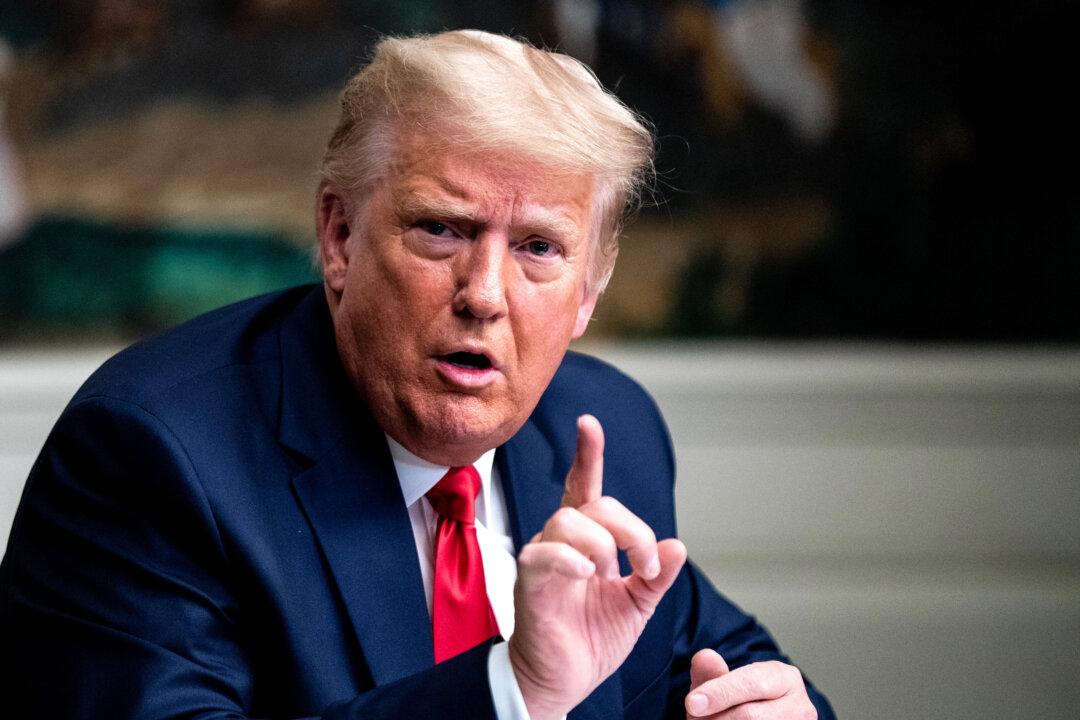President Donald Trump on Tuesday reaffirmed that he would veto the annual national defense spending bill unless it terminates the legal shield that protects “Big Tech” platforms from liability over content posted by users is terminated.
“I hope House Republicans will vote against the very weak National Defense Authorization Act (NDAA), which I will VETO,” Trump wrote on Twitter about the bill, which sets the budget and policy priorities for the Defense Department.





